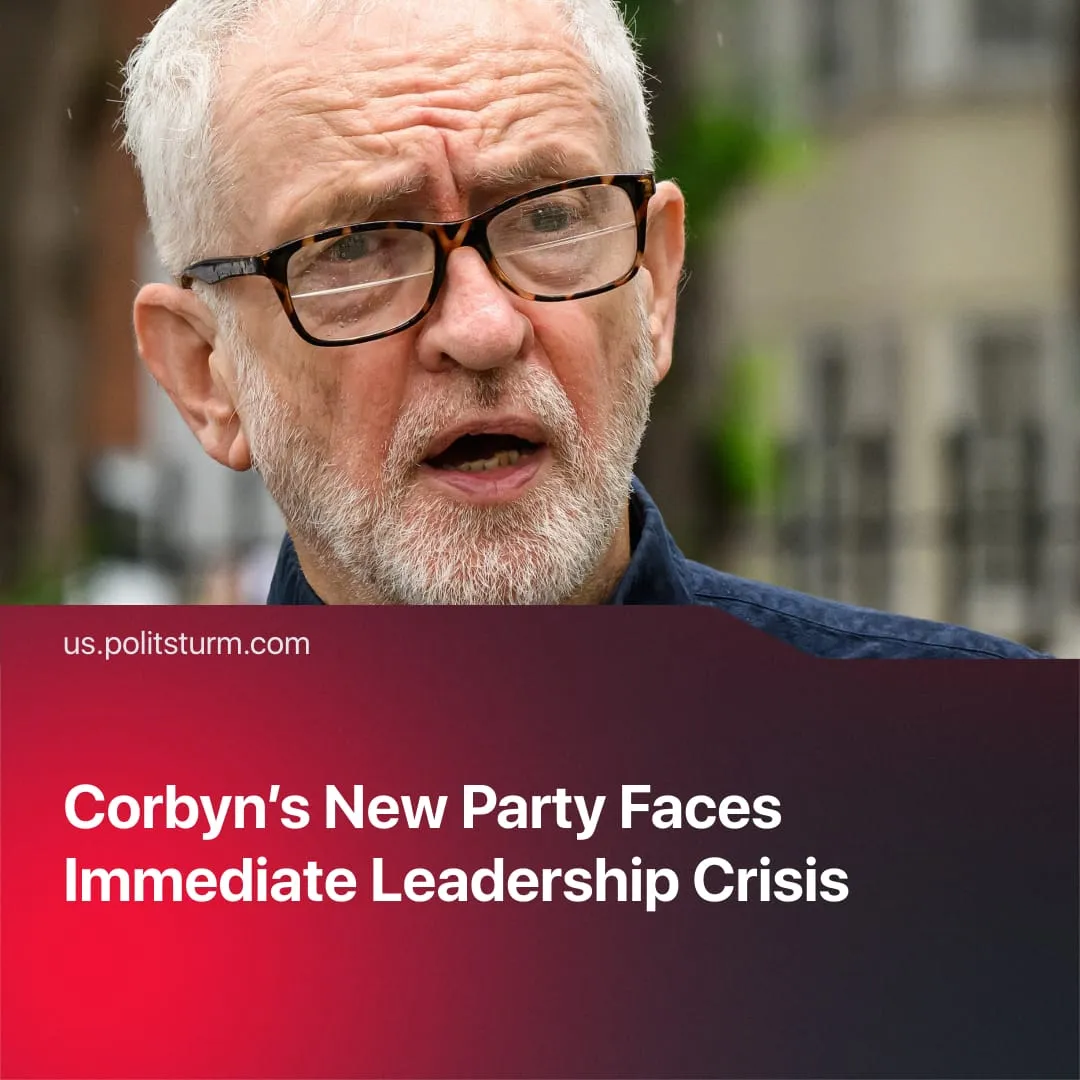Corbyn’s “Your Party” alternative to Labour was shaken by public infighting and leadership disputes within the first 3 months of its existence. This trend follows previous “Labour Party alternatives".
Details. On September 18, co-founder Zarah Sultana launched a membership scheme without authorisation, boasting 20,000 signups. Party leaders condemned the move and considered legal action; sources close to Corbyn described it as a “coup” attempt.
► Public disputes followed. Sultana accused Corbyn of running a “sexist boys’ club,” claimed she had been excluded, and briefly threatened legal action before later seeking reconciliation.
► During the public infighting, a separate group called “Our Party” temporarily formed to replace the leadership for the founding conference.
► Both leaders since promised to proceed towards a founding conference in November. Members who signed up under Sultana’s original link had their data transferred to the new official system.
Context. “Your Party” was announced in July 2025, following record low voter turnout in the 2024 election and mounting disillusionment with both Labour and the Conservatives, after interest in alternative parties had started to grow.
► The leaders, Corbyn and Sultana — both ex-Labour — presented it as a grassroots, “fully” democratic project. The party currently has no official name, leader, or programme, with members promised influence through votes and lottery-based representation at the founding conference scheduled for November.
► Tensions surfaced immediately. Sultana launched the project without Corbyn’s prior approval, and the founding coalition of independents has conflicting views — such as Ayoub Khan, who recently urged military intervention in the Birmingham bin workers’ strike. The only real cohesion among the independents lies in their shared pro-Palestine stance.
► Despite this, “Your Party” has gained traction as a left alternative and for its opposition to the war in Gaza, amassing 800,000 subscribers and 20,000 members. An August poll showed 20% of Britons would consider voting for it.
► The popularity of “Your Party” has also attracted British Trotskyist factions, which see it as a new host for their habitual entryism. Opportunistically chasing its rise, the ‘Revolutionary Communist Party’, ‘Socialist Party’, and ‘Socialist Workers’ Party’ have called for infiltration to “revolutionise” the programme.
Important to Know. The first crisis of “Your Party” reflects a pattern seen in earlier left-wing splits from the British Labour Party. Such splits have repeatedly failed due to similar organisational weaknesses.
► “Socialist Labour Party” (1996), formed under Arthur Scargill — veteran union leader of the 1980s miners’ strikes — initially attracted a wide range of leftist workers and activists disillusioned with Labour. The party was socialist only in words, as its leader advocated social-democratic reforms and decision-making power quickly concentrated around Scargill himself, diminishing the party’s popularity.
► “Respect Party” (2004), led by George Galloway, mobilised around anti-Iraq War sentiment and opposition to Labour’s shift to the centre under Blair and Brown. While it presented itself as a “genuinely left” alternative and won some parliamentary and local council representation, it failed to sustain broad support after the war, and internal leadership conflicts and factionalism contributed to its gradual decline.
► Without discipline and a unifying theory that truly represents working-class interests, i.e. Marxism-Leninism, any new party is bound to end in crisis, and in the best-case scenario, can only offer minor reforms.


